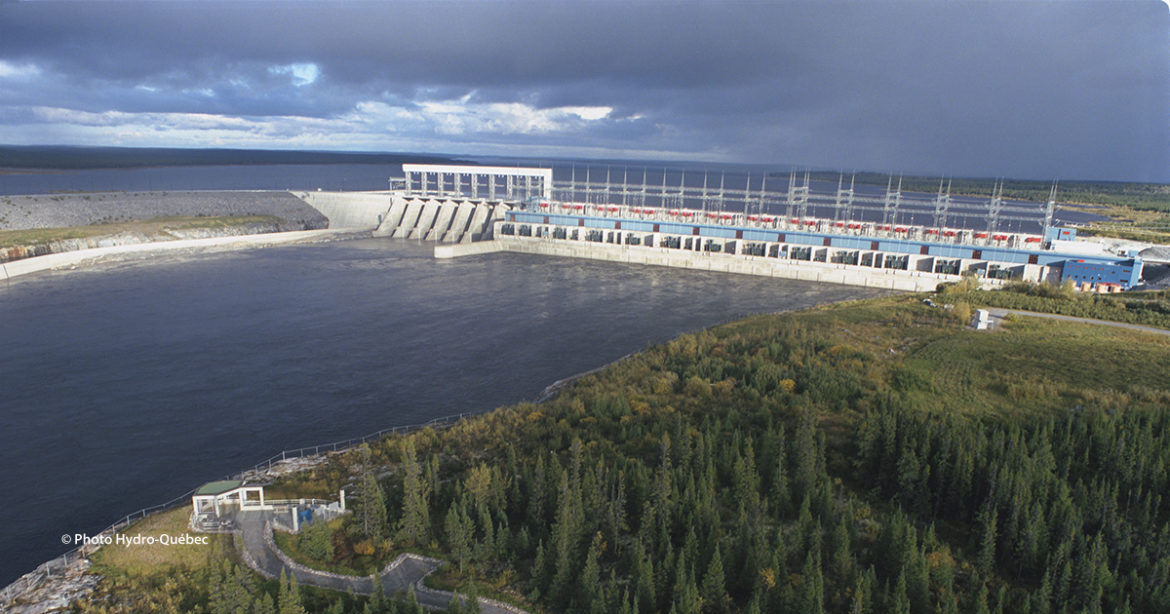Editor’s note: The last of 70 adjudicative hearings on the proposed Northern Pass project was held Thursday in Concord and the state Site Evaluation Committee is expected to approve or deny the 192-mile high-voltage transmission line from Pittsburg to Deerfield by the end of February 2018. Comments about the following Hydro-Quebec press release from Northern Pass spokesman Martin Murray and Jack Savage, spokesman for the Society for the Protection of New Hampshire Forests, are added to the news release in italics.
By Hydro-Quebec news release
The Québec government has granted the authorizations needed to carry out the Québec–New Hampshire interconnection project, which calls for the construction of a 320-kV direct-current transmission line about 80 km long that will be extended into the U.S. to connect Des Cantons substation in Val-Joli to Franklin substation in southern New Hampshire.
“Today marks a major milestone, adding one more key authorization to those that have already been granted on both sides of the border, and moving us closer to proceed with the Québec–New Hampshire and Northern Pass Transmission projects,” said Éric Martel, President and Chief Executive Officer of Hydro-Québec. “I would like to thank our community partners, with whom we’ve been working closely, as well as the Québec government, which has supported us in our initiatives to grow our exports.”
Northern Pass spokesman Martin Murray commented on the news release saying: “The permit in Quebec demonstrates how mature the Northern Pass project is, compared to other proposed projects. We expect to be operational in 2020, two years ahead of any other proposed project. That means cleaner air and reduced energy costs for all of New England, two years ahead of any other project.”
Jack Savage of the Society for the Protection of New Hampshire Forests, said: “I would strongly disagree with Eversource’s perception that they are ahead of other competing projects, NECPL as one example where Vermont state permits have long been in place in large part because that line would be underground and underwater. Eversource looks in the mirror and thinks very highly of itself. Northern Pass is desperate to go to the prom. They’ve gotten a few corsages, but so far they don’t have a date in NH. And no means no.”
The Québec–New Hampshire project as approved involves burying a section of the line in the Forêt Hereford area. The cost will be entirely financed by Hydro-Québec through electricity export revenues, which means that the extra cost of undergrounding part of the line will have no impact on electricity rates in Québec.
This power transmission project is also in keeping with government priorities, in particular the 2030 Energy Policy, in that it will allow Hydro-Québec to increase its interconnection capacity with neighboring U.S. states and thus boost its exports at a time when several of these markets have set ambitious GHG emission reduction targets. Hydro-Québec’s exports contribute to avoiding greenhouse gas emissions in our surrounding markets by displacing generation from thermal power plants.
A historic opportunity in Massachusetts
The Québec–New Hampshire interconnection and Northern Pass Transmission (NPT) line together make up one of the three power transmission projects which were among the options proposed by Hydro-Québec and its U.S. partners in response to Massachusetts’ request for proposals for the supply of a large volume—9.45 TWh—of clean, reliable energy. Announcement of the winning bid is expected on January 25, 2018. If the NPT project is chosen by Massachusetts, line construction will begin in 2018, with commissioning slated for 2020. It should be noted that the U.S. proponent of the NPT project, Eversource Energy, has already obtained its presidential permit.
Economic spinoffs in Québec during construction
- On average, about 100 on-site workers will be involved in line construction, which will extend over approximately 15 months.
- Direct and indirect jobs created by the project in Québec will represent some 300 person-years.





